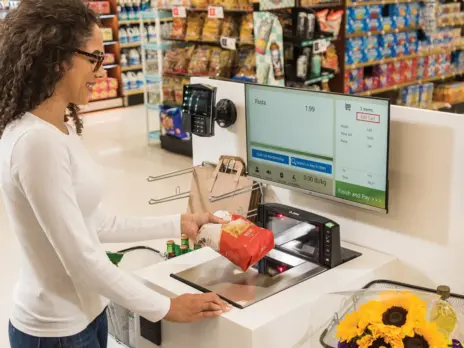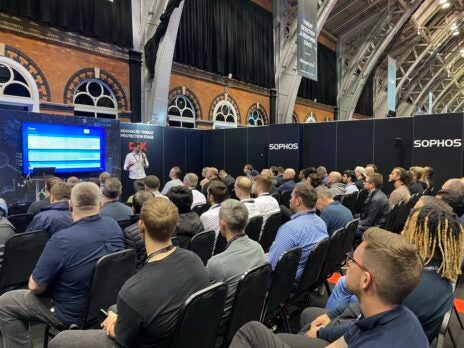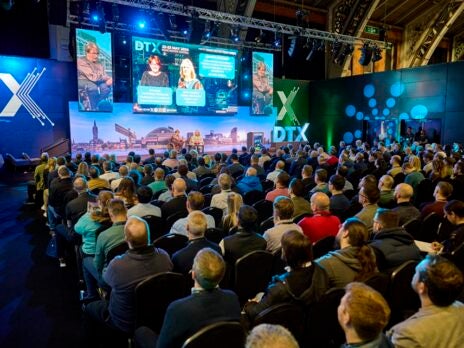IBM Entry Systems vice-president and Boca Raton laboratory director Brian Utley is the latest in a long line of US-based light-shedding missionaries currently being dispatched across the Atlantic. With responsibility for all PS/2 hardware development, Utley fielded numerous questions relating to Micro Channnel architecture, with particular emphasis focusing, predictably, upon its positioning vis-a-vis planned offerings from the rival Extended Industry Standard Architecture or EISA consortia. In a surprisingly short preamble, Utley claimed that IBM was very pleased with current Micro Channel acceptance rates, particularly, it seems, in Europe, where the products have been very well received. He also paid tribute to the board manufacturing industry, arguing that 580 separate Micro Channel board offerings are now available from manufacturers.
Recant The direction of Micro Channel has been confirmed, he concluded, adding that the product is now in a good position to become the next industry bus standard. With questioning under way, however, Utley was forced to recant. Responding to the charge that, within the PS/2 offering, only the VGA graphics and 3.5 floppy disk components had found noticeable customer favour, Utley suddenly redefined both OS/2 and Micro Channel Architecture as long-haul propositions. Apparently willing to concede that, without appropriate application support, Micro Channel’s new levels of functionality provide little in themselves, Utley then placed OS/2 into a similar product-of-the-future category. As an enabler, he continued, it does not cause the world to change overnight: we did not expect immediate, 100% acceptance. Short-term justification for the two came became reduced to the proviso that it is important for industry to know where, and in what IBM is investing. Unfortunately, general questions endeavouring to draw comparisons bewteen the Micro Channel bus and the EISA rival came up against a stone wall: as IBM had not seen EISA specifications, ran the Utley argument, it was simply not able to evaluate or comment. He was, however, more willing to be drawn on specifics: the arbitration algorithm comparisons which IBM had seen – were based on a Model 50, 286-based implementation of Micro Channel, and, as such, were dismissed as an unfair representation. Similarly, in an implied contrast, Utley was keen to play up the open nature of Micro Channel architecture: additional functions, such as support for 32-bit direct memory access channels and eventual extension beyond 386 based architecture, could and would be introduced, he argued, without obsoleting existing compatibilties and implements.
No indication, however, of when: pushed, Utley would only concede that Micro Channel conformed to the general, turns-over-every-12 to-18-months product line rule. On the important question of co processors, however, Utley was even less forthcoming. IBM will, apparently, be demonstrating three co-processors running on the same Micro Channel at next month’s Comdex exhibition. This does not, however, represent a launch, or even an unveiling: the co processor type in question will be one of three models currently available, with odds on the proprietary RT 6152 RISC, which can run as a separate processor when plugged into a PS/2. On patents and copyrights, however, some degree of illumination was gained. Drawing a careful distinction between the two, Utley stated that no attempt would be made to stop EISA development by withdrawing AT patents: similarly, all PS/2 patents are apparently available under IBM’s open licensing and cross-licensing policy. Copy rights are, however, observed for all design aspects, notably BIOS, software code, and plug design: what EISA does on these fronts is, he argued, its prerogative. At a more general level, Utley was able to report the establishment of a constructive, if intense relationship with Taiwan: unlike Indonesia and Malaysia, he commented, Taiwan has now passed laws that acknowledge intellectual property assets. Equally forthright were comments on d
istribution.
Dealer support Attempting to clarify the current confusion, Utley stated quite categorically that none of the seven distributor agreements currently operating in the UK has been withdrawn. He did, however, allude to the arrival of a new phase of distribution: with the introduction of OS/2, he argued, customers will rely increasingly on a very high and very sophisticated degree of dealer support. The Systems Centre programme, had, he continued, been designed by IBM to address this need some two years ago. Similarly, he detected the first corresponding signs of dealer market segmentation, characterised at one end by walk in, walk out chains, and at the other by vendors supplying sophisticated systems, hardware and software, requiring both support and services. Although keen to stay close to the evolving, bottom end of the market, IBM dealers’ skills must extend beyond the first question and answer, he concluded. Looking ahead to the predicted downturn in the personal computer industry, Utley argued that a European breather would have distinct advantages. Describing the current growth rate as unsustainable in the long-term, he nevertheless denied that IBM’s own development rates or methods would change. A lull would simply cause people to be more selective, he argued, and that would, of course, be good for IBM.





